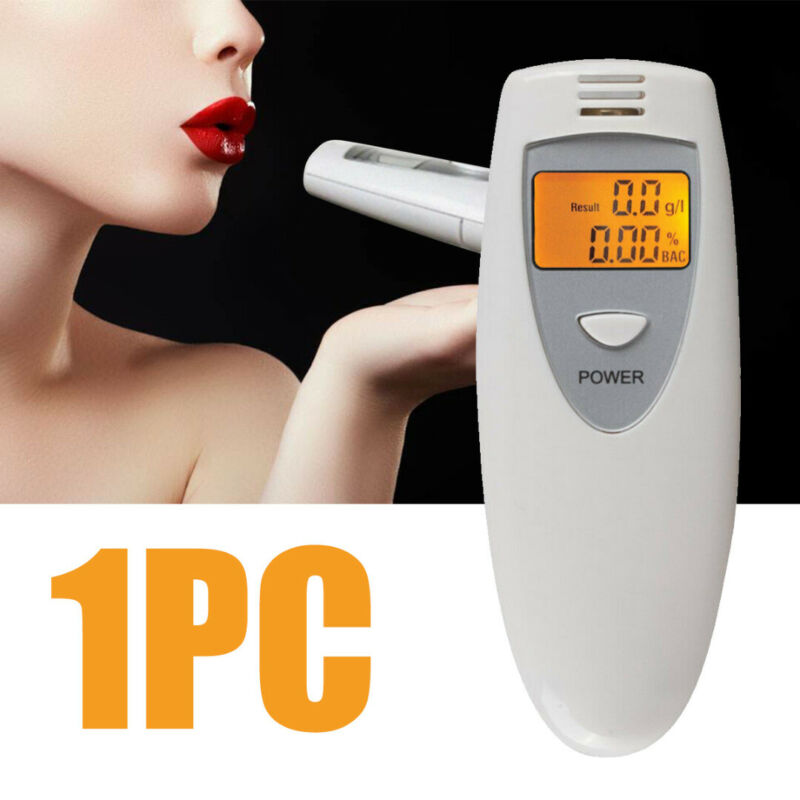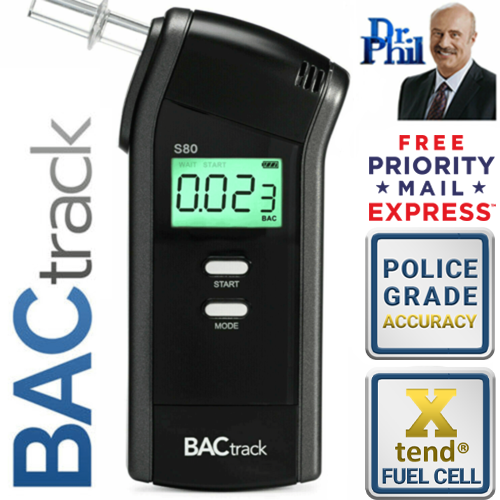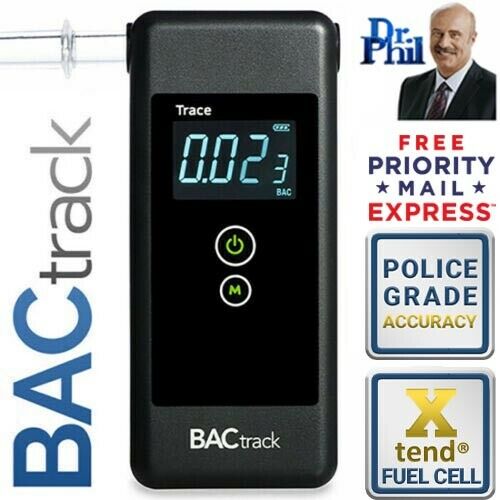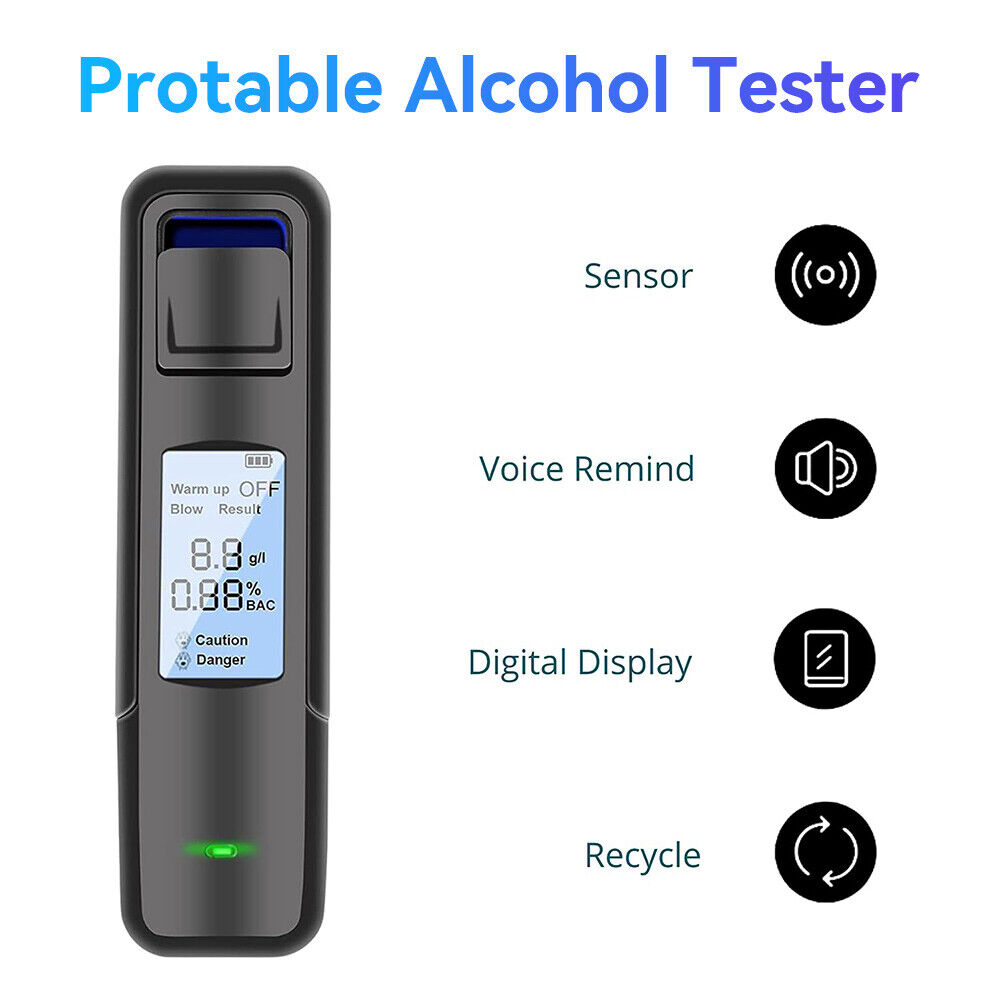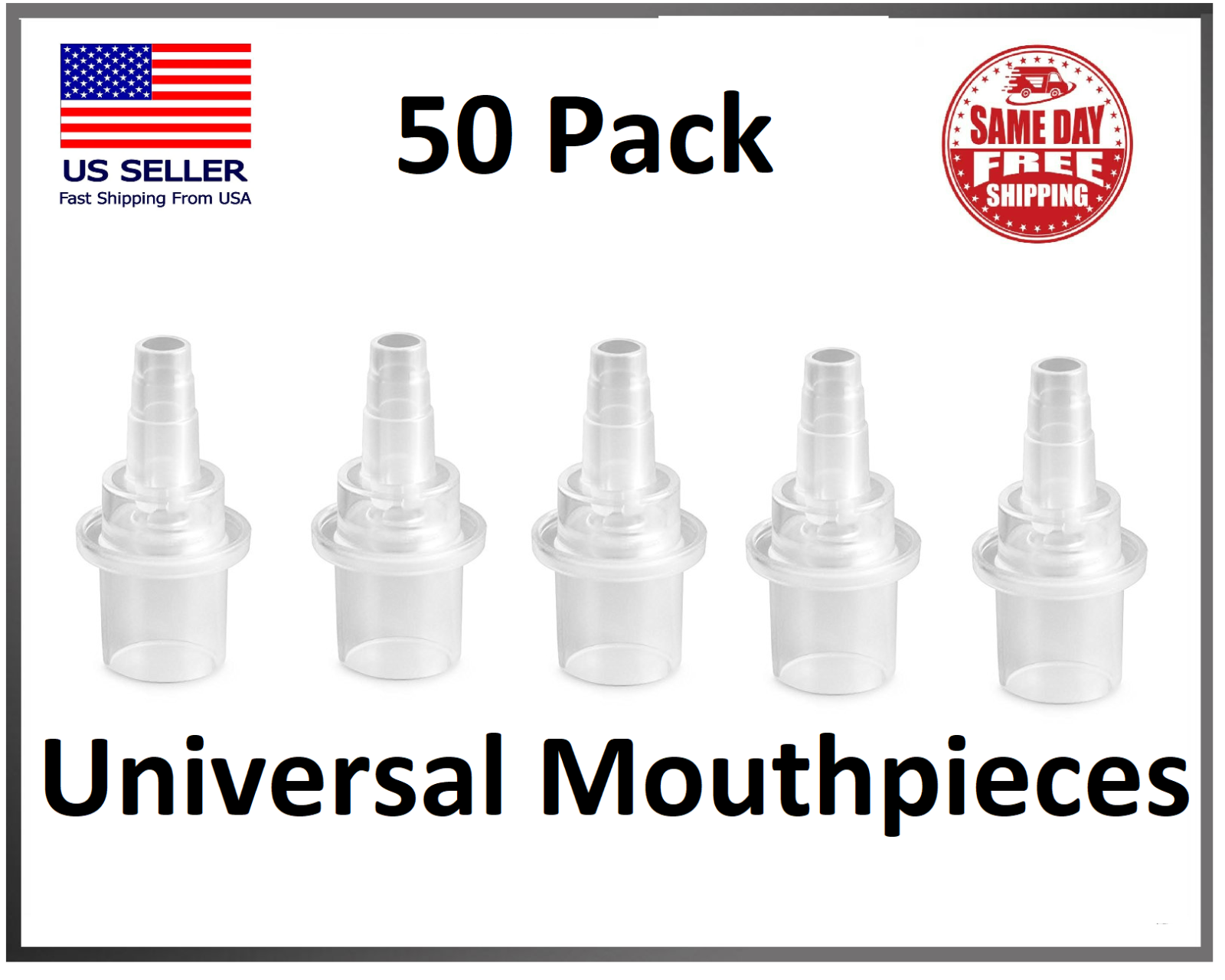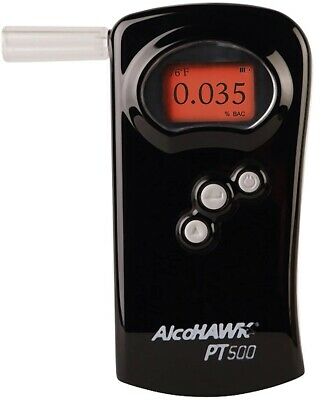-40%
Breath Alcohol Detector 0.08% Disposable * Single Use * USA DUI/DWI limit
$ 1.31
- Description
- Size Guide
Description
Reveal Breath Alcohol Test is intended to measure the alcohol level in the human breath.Results are used in the diagnosis of alcohol intoxication.
The Reveal Alcohol Breath Test is a semi-quantitative, rapid screening test.
It indicates relative Blood Alcohol Concentration (BAC) at 0.02% or 0.08% cut-off levels.
Each detector contains crystals that detect a specific cut-off of BAC.
The test is based on a chemical reaction. Alcohol reacts with the crystals in the detector to produce a color change. The color change depends on the amount of alcohol in the breath.
If the test is positive, the amount of alcohol in the breath is greater than or equal to the cut-off level of the detector
Drunk Driving Laws
June 2013
All states define driving with a blood alcohol concentration (BAC) at or above 0.08 percent as a crime, but specific laws and penalties vary substantially from state to state. Most states have higher penalties for higher BACs.
Here is the Link to all 50 States Drunk Driving Laws.
http://www.ghsa.org/html/stateinfo/laws/impaired_laws.html
One Drink is Considered
1 Beer
1 Three Ounce Glass of Wine
1 Shot or 1 Ounce of Hard Liquor
Drink and Weight Table 0.08% DUI/DWI Limit
Weight
Number of Drinks
1
2
3
4
5
6
7
8
9
100
0.032
0.065
0.097
.0129
.0162
0.194
0.226
0.258
0.291
120
0.027
0.054
0.081
0.108
0.135
0.161
0.188
0.215
0.242
140
0.023
0.046
0.069
0.092
0.115
0.138
0.161
0.184
0.207
160
0.020
0.040
0.060
0.080
0.101
0.121
0.141
0.161
0.181
180
0.018
0.036
0.054
0.072
0.090
0.108
0.126
0.144
0.162
200
0.016
0.032
0.048
0.064
0.080
0.097
0.113
0.129
0.145
220
0.015
0.029
0.044
0.058
0.073
0.088
0.102
0.117
0.131
240
0.014
0.027
0.040
0.053
0.067
0.081
0.095
0.108
0.121
.02 BAC Level
At the .02 blood alcohol concentration level, experiments have demonstrated that people exhibit some loss of judgment, begin to relax and feel good. But tests have also shown that drivers at the .02 level experience a decline in visual functions, affecting their ability to track a moving object, and experience a decline in the ability to perform two tasks at the same time.
These changes may be very subtle and barely noticeable to the person who has had only one drink, but in an emergency situation while behind the wheel of a vehicle, they could cause the driver to react (or not react) as they would without having had a drink.
.05 BAC Level
At the .05 BAC level, people begin to exhibit exaggerated behavior, experience loss of small-muscle control -- such as being able to focus their eyes quickly -- have impaired judgment, lowered alertness and a release of inhibition.
If someone with a BAC level of .05 gets behind the wheel, they would be operating the vehicle with reduce coordination, a further diminished ability to track moving objects, more difficulty in steering and a markedly reduced response in emergency situations.
.08 BAC Level
When someone drinking is approaching the borderline of legal intoxication, studies show that he or she has poor muscle coordination -- affecting their balance, speech, vision, reaction time and hearing -- find it more difficult to detect danger, and exhibit impaired judgement, self-control, reasoning ability and memory.
A driver with a BAC of .08 will find it more difficult to concentrate, judge the speed of the vehicle, experience reduced information processing capability and exhibit impaired perception.
Slower Reaction Time
For the person who is drinking, the above impairments may be hardly noticeable at the time, but the slow reaction times that they can produce could prove fatal in a emergency driving situation. That's why it is not a good idea to drive no matter how much or how little that you have had to drink.
There is another consideration: Alcohol affects people differently. Some people have a higher response to drinking alcohol than others. In other words, people with a high response to alcohol can experience signs of impairment at the .02 BAC level that others do not experience until the .05 level.
The Safe Limit
For this reason, in some states drivers can be arrested for driving while impaired even if their blood alcohol concentration is lower than the legal limit, if the law enforcement officer believes he has probable cause based on the behavior and reactions of the driver.
It's simply not a wise choice to get behind the wheel no matter how much you have had to drink. The only safe driving limit is .00 percent.


